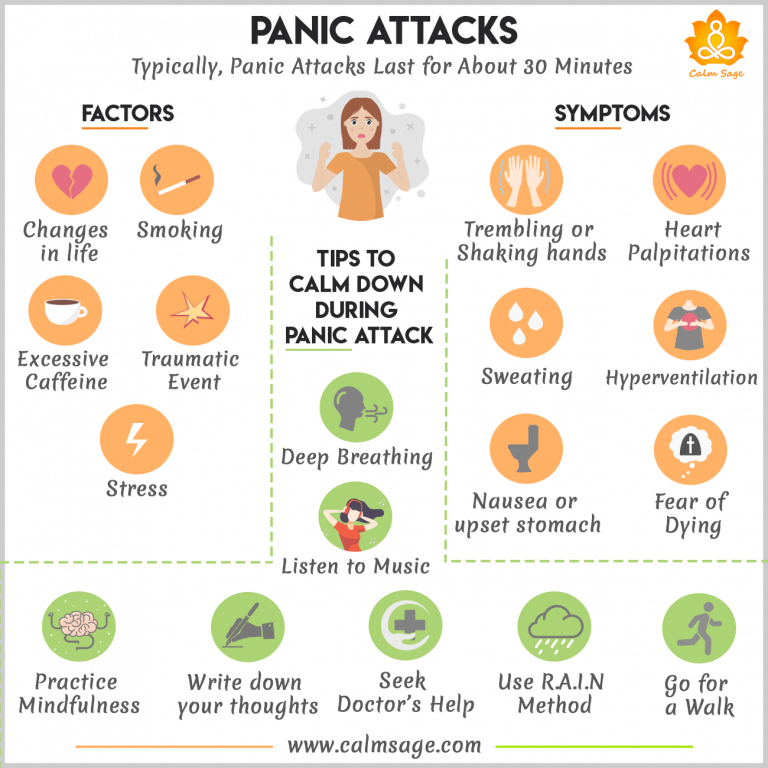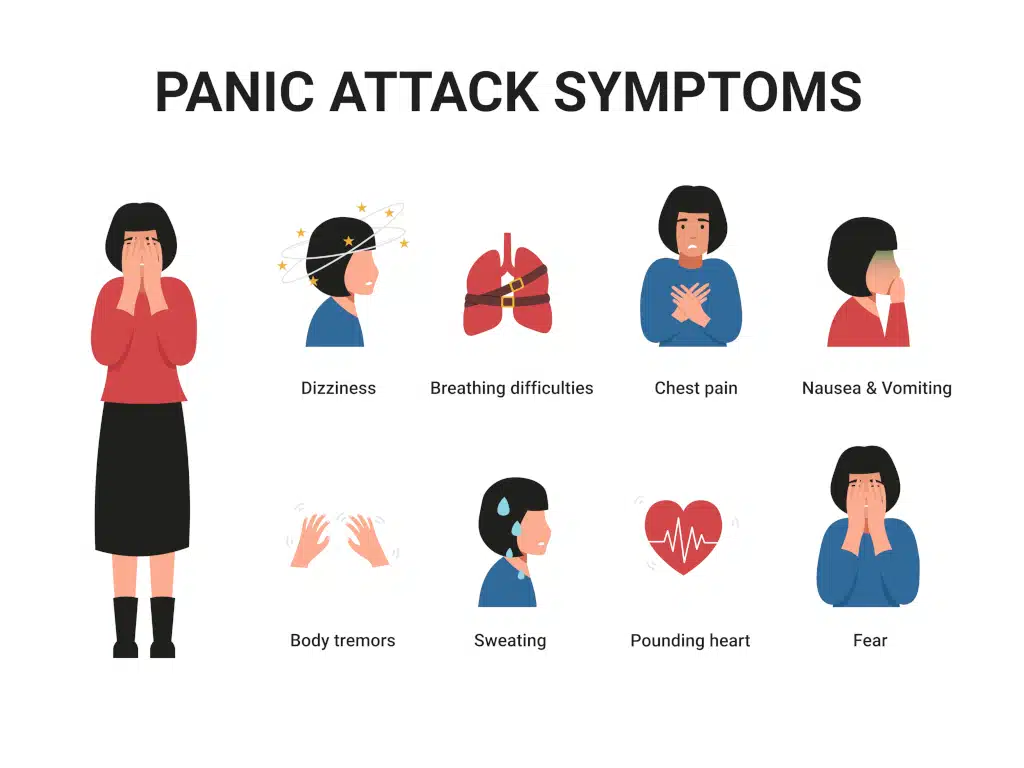Discover Healing Foods to Reduce Panic Attack Triggers
Panic attacks can feel overwhelming, leaving Leaf Seekers searching for relief. Many members of kratomforum.org discuss natural ways to manage their symptoms, and a key aspect of this involves exploring healing foods to reduce panic attack triggers. Understanding how nutrition can impact your mental well-being is a powerful step towards reclaiming control. This article will delve into the science behind how certain foods can help alleviate panic attack triggers and provide practical advice for incorporating these healing foods into your daily diet. We’ll explore the specific nutrients and their effects, offering you a roadmap to a calmer, more balanced life. The power of healing foods to reduce panic attack triggers is within your reach.
Understanding Panic Attack Triggers and the Role of Nutrition
Panic attacks are characterized by sudden surges of intense fear or discomfort, accompanied by physical symptoms like rapid heartbeat, shortness of breath, and dizziness. While the exact causes are complex, several triggers can contribute to these episodes, including stress, anxiety, and even certain foods. This is where the power of healing foods to reduce panic attack triggers comes into play. By focusing on a diet rich in specific nutrients, you can help to mitigate these triggers and improve your overall resilience to anxiety. The potential of healing foods to reduce panic attack triggers should not be underestimated.
The Gut-Brain Connection and its Influence on Anxiety
Emerging research highlights a strong connection between gut health and mental well-being, a relationship often referred to as the "gut-brain axis." The gut microbiome, the vast community of microorganisms residing in your digestive system, plays a crucial role in producing neurotransmitters, such as serotonin and GABA, which are essential for regulating mood and reducing anxiety. An imbalanced gut microbiome, often caused by poor diet, can contribute to increased anxiety and the frequency of panic attacks. Therefore, choosing healing foods to reduce panic attack triggers directly supports a healthy gut, and consequently, a calmer mind. Many Leaf Seekers find that addressing their gut health is a cornerstone of managing panic attacks. The impact of healing foods to reduce panic attack triggers on the gut-brain axis is significant.
Healing Foods to Reduce Panic Attack Triggers: Key Nutrients
Several essential nutrients are key players in promoting mental well-being and reducing the likelihood of panic attacks. Understanding these nutrients and incorporating them into your diet is fundamental to harnessing the power of healing foods to reduce panic attack triggers.
Magnesium: The Calmative Mineral
Magnesium is a vital mineral involved in hundreds of bodily functions, including nerve transmission and muscle relaxation. Magnesium deficiency is linked to increased anxiety and panic attacks. Consuming magnesium-rich foods can help to alleviate symptoms by promoting relaxation and reducing nerve excitability. Excellent sources include leafy green vegetables, almonds, avocados, and dark chocolate. The benefits of healing foods to reduce panic attack triggers, particularly those rich in magnesium, are well-documented. Finding the right balance of healing foods to reduce panic attack triggers that work for you is key.
Omega-3 Fatty Acids: Brain Boosters

Omega-3 fatty acids, particularly EPA and DHA, are essential fats crucial for brain health. They play a critical role in reducing inflammation throughout the body, including the brain, which can contribute to anxiety and panic attacks. Studies suggest that omega-3 supplementation can help to alleviate anxiety symptoms. Good sources of omega-3s include fatty fish (salmon, tuna, mackerel), flaxseeds, and chia seeds. Including these healing foods to reduce panic attack triggers in your diet can have a profound impact on your mental well-being. The role of healing foods to reduce panic attack triggers in providing essential fatty acids is undeniably important.
Vitamin D: The Sunshine Vitamin
Vitamin D, often called the "sunshine vitamin," plays a multifaceted role in health, including mental well-being. Deficiency in vitamin D is linked to an increased risk of depression and anxiety. Sunlight exposure is a primary source, but you can also obtain vitamin D from fatty fish, egg yolks, and fortified foods. Prioritizing healing foods to reduce panic attack triggers that are rich in vitamin D can contribute to improved mood regulation. The importance of healing foods to reduce panic attack triggers, especially those containing Vitamin D, cannot be overstated.
B Vitamins: Mood Regulators
B vitamins are a group of essential nutrients vital for energy production and nerve function. Several B vitamins, including B6, B9 (folate), and B12, are involved in the synthesis of neurotransmitters, including serotonin and dopamine, which are crucial for mood regulation. Deficiencies in B vitamins can lead to increased anxiety and depression. Good sources include whole grains, leafy green vegetables, legumes, and meat. Making sure you consume healing foods to reduce panic attack triggers rich in B vitamins is a crucial step in supporting your mental health. The power of healing foods to reduce panic attack triggers through B vitamin intake should not be overlooked.

Probiotics: Gut Health Guardians
Probiotics are beneficial bacteria that support a healthy gut microbiome. As mentioned earlier, gut health is intricately linked to mental well-being. Consuming probiotic-rich foods, such as yogurt, kefir, and sauerkraut, can help to restore balance in the gut, potentially reducing anxiety and the frequency of panic attacks. Incorporating these healing foods to reduce panic attack triggers can be a valuable part of a holistic approach to anxiety management. The significant role of healing foods to reduce panic attack triggers, particularly probiotics, in gut health is becoming increasingly recognized.
Healing Foods to Reduce Panic Attack Triggers: Practical Dietary Strategies
Incorporating healing foods to reduce panic attack triggers doesn’t require drastic changes. Small, consistent steps can make a significant difference.
Prioritize Whole Foods

Focus on a diet rich in whole, unprocessed foods, such as fruits, vegetables, whole grains, and lean protein. These foods provide a wider range of essential nutrients compared to processed foods, which often lack nutrients and can even exacerbate anxiety symptoms. The impact of healing foods to reduce panic attack triggers is amplified when you choose whole, unprocessed options.
Hydration is Key
Dehydration can worsen anxiety symptoms. Make sure to drink plenty of water throughout the day. Adequate hydration is often overlooked, yet it plays a crucial role in overall well-being, including mental health. The importance of healing foods to reduce panic attack triggers is complemented by ensuring proper hydration.
Limit Processed Foods, Sugar, and Caffeine
Processed foods, high-sugar drinks, and caffeine can trigger anxiety and worsen panic attack symptoms. Moderation or elimination of these items from your diet can have a positive impact on your mental well-being. Identifying and reducing triggers, such as processed foods, is an important part of using healing foods to reduce panic attack triggers effectively.
Mindful Eating Practices
Practice mindful eating. Pay attention to your body’s hunger and fullness cues, and eat slowly and deliberately. This can help to reduce stress and improve digestion. Mindful eating complements the benefits of healing foods to reduce panic attack triggers, creating a holistic approach to well-being.
Beyond Diet: A Holistic Approach to Panic Attack Management
While diet plays a significant role, it’s essential to remember that a holistic approach to managing panic attacks is most effective. This includes:
Stress Management Techniques
Incorporate stress-reducing activities into your daily routine, such as exercise, yoga, meditation, or spending time in nature. Stress is a major trigger for panic attacks, and effective stress management techniques are crucial for long-term well-being. The benefits of healing foods to reduce panic attack triggers are maximized when combined with stress management.
Therapy and Support
Consider seeking professional help from a therapist or counselor. Therapy can provide valuable coping mechanisms and strategies for managing anxiety and panic attacks. The power of healing foods to reduce panic attack triggers is enhanced when combined with professional support.
Sufficient Sleep
Prioritize getting enough sleep. Sleep deprivation can exacerbate anxiety symptoms. Aim for 7-9 hours of quality sleep each night. The impact of healing foods to reduce panic attack triggers is improved with adequate rest.
Conclusion: Embracing the Power of Healing Foods
The journey to managing panic attacks is a personal one, and healing foods to reduce panic attack triggers represent a powerful, natural approach. By focusing on a diet rich in magnesium, omega-3 fatty acids, vitamin D, B vitamins, and probiotics, and by incorporating mindful eating practices and stress management techniques, Leaf Seekers can significantly improve their resilience to panic attacks and cultivate a calmer, more balanced life. Remember that while these dietary changes can be incredibly beneficial, they should be part of a comprehensive approach that also incorporates stress management, sufficient sleep, and, when necessary, professional support. The power of healing foods to reduce panic attack triggers, combined with a holistic approach, offers a pathway to a healthier and happier you.
Tags: panic attacks, anxiety, nutrition, healthy eating, mental health

